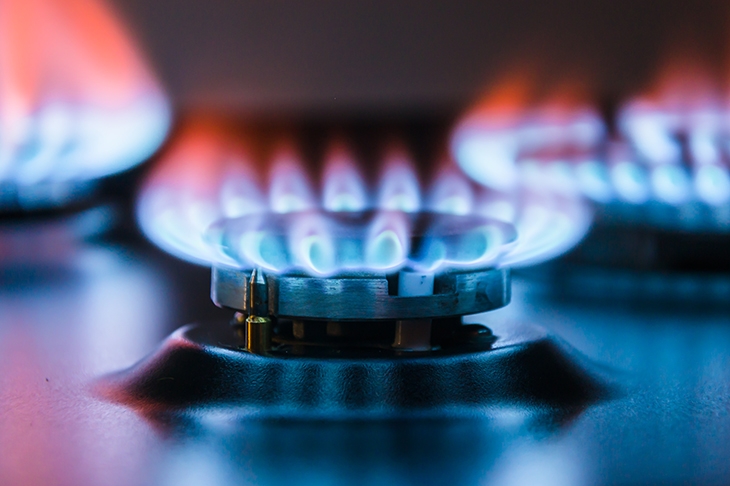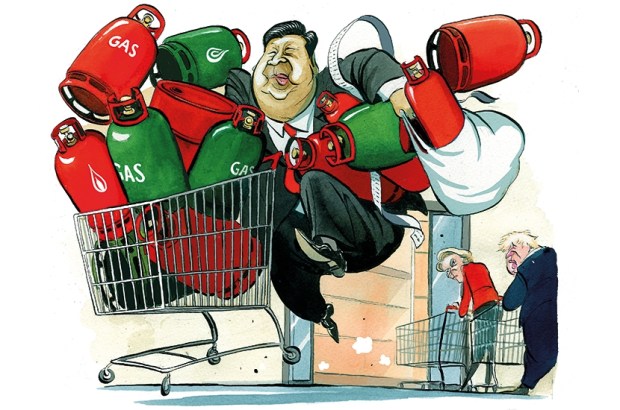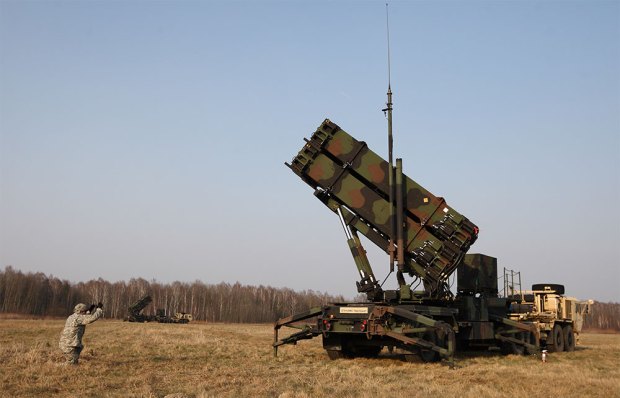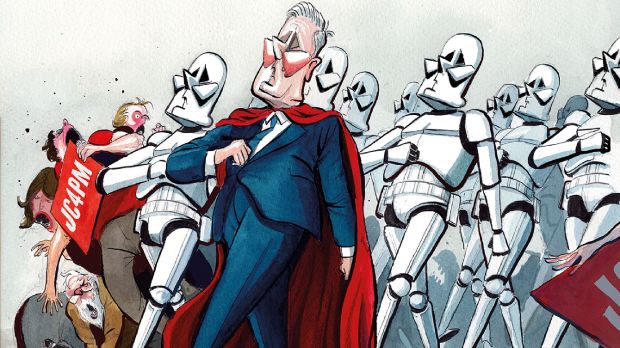The stove won’t light. The boiler won’t fire up. Pipes are frozen and the water has stopped running. Welcome to Christmas 2021. Amid a fierce cold snap, with another ‘Beast from the East’ blasting across the country, the UK’s meagre stockpiles of gas have been exhausted and the country is plunged into a crisis. Old people are dying and the rest of us are doing our best to keep warm. The closest thing to the apocalypse most of us will experience in our lifetimes has arrived.
Well, perhaps. It is easy to sketch out lurid scenarios of what might happen if the country runs out of gas. In reality, it won’t be that bad. Before we get there, we will see industrial closures and then some form of rationing. But that doesn’t mean it won’t be a serious problem. A gas emergency will cause huge disruption to the economy, widespread shortages and a political crisis from which even the Johnson administration, with its formidable powers for bouncing back, may not recover.
There is no question there is a real risk of a serious shortage of gas this winter. The price of every form of energy has rocketed in the past six months, but gas most of all. At the start of September, if you were in the market for a thousand cubic meters of gas, the standard trading unit, you could get one for just over $500. By the middle of the month, that had jumped to $800, and by its close it was above $1,000, an all-time high. By Tuesday, gas prices were up another 23 per cent. You don’t need to know much about economics to work out that prices only spiral up like that when increases in demand meet a squeezed supply. And a crisis point is close.
The problem for the UK is that we have very low reserves of natural gas. We have enough stored for four or five winter days, far less than most European countries. While there were plentiful supplies from Norway and Russia, supertankers that could bring it in from around the world and production from the North Sea that could be ramped up when necessary, that didn’t matter much. But in a market as tight as this one, and with every country scrambling to keep reserves topped up, it is a critical weakness. What are the chances of the gas running out? One analysis in the City puts it at 30 per cent some time over the winter, and a spell of cold weather, which dramatically increases demand, will push those odds even higher. We may be lucky and get through this, but you wouldn’t want to bet your last logs for the fireplace on it.
That matters. In the UK, 87 per cent of homes rely on gas for heating, up from 45 per cent in 1975, the last time there was a major energy crisis. Most rely on it for cooking as well. While the microwave can always heat up some pot noodles if necessary, assuming the electricity is still working, that isn’t going to keep anyone warm.
Of course, we are not likely to get to that point. If reserves run critically low, we will start restricting usage. Factories will be put on a three-day week, hitting industries such as chemicals, food, minerals and paper. Next, they may be closed completely. After that, schools and offices may go to a three-day week as well. And of course the retailers: a mall in winter needs a lot of heating. Then three-day closures could be turned into the whole week and demand will come down. Roughly 40 per cent of our electricity comes from gas. Closing offices, shops and factories would free reserves for home heating, and if necessary we could use more oil to keep the power generators running.
We hope the government has a plan somewhere, although as Mike Tyson famously observed, everybody has a plan until they get punched in the face. With industrial and office closures and schools shutting down, we should make it through to spring without switching off anyone’s gas boiler. But there is no question that it will be a political humiliation. The government will have been exposed as dangerously inept and whatever reputation for competence it has left may not recover.
Got something to add? Join the discussion and comment below.
Get 10 issues for just $10
Subscribe to The Spectator Australia today for the next 10 magazine issues, plus full online access, for just $10.
You might disagree with half of it, but you’ll enjoy reading all of it. Try your first month for free, then just $2 a week for the remainder of your first year.















Comments
Don't miss out
Join the conversation with other Spectator Australia readers. Subscribe to leave a comment.
SUBSCRIBEAlready a subscriber? Log in